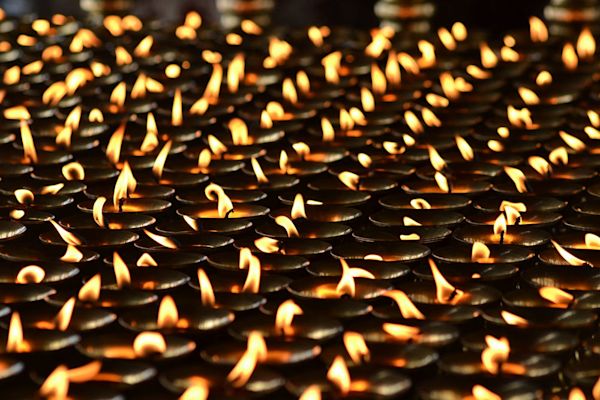- Mauritius Holidays
- Travel Guides
- Festivals in Mauritius
Festivals in Mauritius
The burst of firecrackers brings in the New Year and the spectacle of fire walking sees it out. Although Mauritius is a small island it has large numbers of Hindu, Christian, Muslim and Buddhist people and its multicultural nature has resulted in a huge number of festivals throughout the year. Port Louis is a great place to experience most celebrations as it is usually central to the festivities but you will find ceremonies all across Mauritius, and with so many celebrations we have put together a guide to some to the festivals in Mauritius.

Chinese Spring Festival or Chinese New Year
The start of the Chinese Spring Festival is Chinese New Year and this is one of the most important celebrations in the Chinese year, according to traditional calendar the celebrations start on the first day of the first month but this date varies annually, but is usually sometime in January or early February. Chinese New Year’s eve festivities will see families enjoy a large meal known as the reunion dinner. Traditional firecrackers are set off at the beginning of the festival to ward off evil spirits and Chinatown in Port Louis is home to some big celebrations with dancing and fireworks.
Maha shivaratri
February: Maha shivaratri is a three day Hindu festival to celebrate the Great Night of Lord Shiva. During this time Hindus dress in white and take pilgrimage to the lake Grand Bassin, which is considered a holy lake for Mauritian Hindus because the waters are linked to the sacred river Ganges. The pilgrims use the water at the lake to sanctify themselves.
Cavadee Festival
Celebrated at many times during the year the biggest and most famous Cavadee is the Thaipoosam Cabadee, which takes place during January or February. It is celebrated mostly by people of Tamil origins and can be quite a spectacle. It begins with a fast and afterwards people have their cheeks, tongues and chests pierced with needles. Fire walking and sword climbing ceremonies also take place.

Ougadi
March: Also called Ugadi this festival marks the beginning of the Hindu lunar calendar. Up to a week before the celebrations houses are completely cleaned and washed and on the day itself people get up before sunrise and decorate the entrance to their homes. Prayer for prosperity and health are common at this time as it is considered the best time to start new things.
Holi
Holi is also known as the Festival of Colour and is celebrated by Hindus and Sikhs throughout Mauritius and it is an official holiday. On the eve of Holi a bonfire is lit to mark the triumph of good over evil and the celebrations continue with the throwing of coloured powder, which represents love and brotherhood. A symbol of the spring and the end of winter as well as having religious meaning, the festival also works to bring together people from all walks of life.

Ganesh Chaturthi
August: A Hindu celebration of the birth of Lord Ganesha, Ganesh Chaturthi has folk dancing and fasting. People clean their houses in the run up to the festival and statues of the Lord Ganesh are made from earth. After the festival the statues cannot be kept in the house and will be taken to the lake with a procession where they are submerged. This is a festival for prayer and reverence but is also very joyful.
Eid-Ul-Fitr
October: Signifying the end of Ramadan, which is a month of religious fasting during daylight hours, the Eid-Ul-Fitr is the time when Muslim families exchange gifts and eat meals together. Prayers for peace and prosperity are said and mosques offer food to the needy.
Diwali
October and November: Diwali is the Hindu Festival of Lights and is widely celebrated in Mauritius by people of all faiths. Lights are placed in front of houses, which are thought to guide the Goddess Luckshmi to the earth to bring wisdom and good fortune. Diwali is the traditional festival to mark the victories of good over evil.

Fire walking
December: The Tamil ceremony of fire walking occurs between December and February each year. People go to the temple where they will walk across hot coals during a ten day festival of purification and praying.